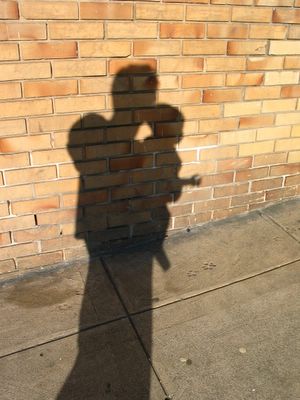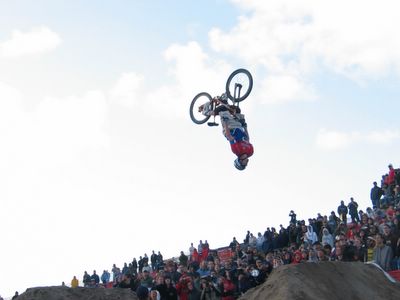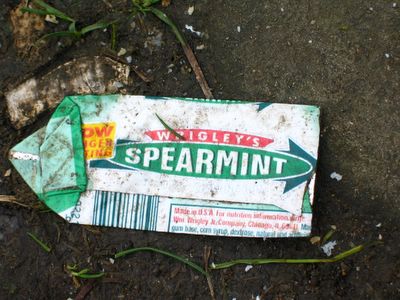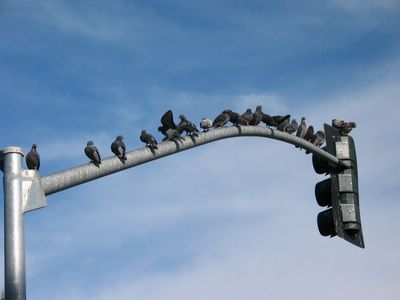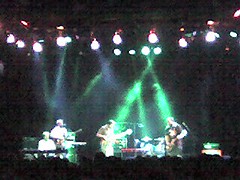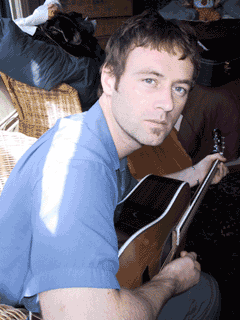Festival Express is a documentary of a travelling music festival that wound its way through Canada by train through the summer of 1970. The red Netflix envelope announced its arrival when I checked my post box yesterday evening. As soon as the kids were in bed, I ensconced myself on the couch, prepared for a journey back in time. I was pleasantly surprised by how rich and alive the music still sounded, and how precise and overwrought much of today's music sounds in comparison. The premise was that instead of having the bands fly in and out of the festival without interacting, they would travel between venues by train. The train was equipped with instruments, drugs, and booze. This ensured the mother of all rock and roll parties. On board were such luminaries as The Grateful Dead, The Band, Buddy Guy, The Flying Burrito Brothers, Janis Joplin, and several bands that memory has not been as kind too.
It was a revalation how young they all seemed. Janis Joplin seems barely out of childhood. Even more surprising is the vibrancy of the music. The endless sub division and genrification of music had not yet kicked in. These were musicians who could play, and they drew on a rich seam of Amercian music - country, blues, folk, and even jazz were thrown into the melting pot. These were, (and many are still), musicians whose talent obviously developed organically. There was no career choice involved, no schools of music and no stints with The Mickey Mouse Club as preparation for a life in showbiz. Much of today's music, even those great and clever pop tunes turned out by producers such as The Neptunes, or Britney's fiendishly clever Swedish song writer, Max Martin, (come on! We all know you secretly like "Oops, I Did It Again"), are first and foremost studio creations. These are not songs that are dragged out on the road and tested night after night on front of flesh and blood audiences. Don't get me wrong, I believe that there are still many great musicians and bands out there. Anyone who has been amazed by
The Arcade Fire's, "Funeral" knows that another classic has been added to the rock n' roll canon. And we shouldn't forget that Motown was an assembly line for prefab pop stars that turned out music written to a hit making formula. However, most of the Motown
session musicans behind the scenes were experienced jazzers with years spent on the road. This is why the music still sounds "real" today.
I have never really listened much to The Grateful Dead, although living in San Francisco they are part of the fabric, and I am familiar with much of their music. Their commitment to American music sometimes gets lost behind the myths, the monster concerts, the Deadheads, and the endless jams. They just happend to collide with the zeitgeist, and through luck and coincidence, surfed it's wave for thirty years. At the end of the day, as the documentary illustrated , at their core, they were a band of top notch musicians who played first and foremost for the joy of playing. I have an accidental interest in Jerry Garcia. My house was previously owned by
Merl Saunders, a musical cohort of Garcia's, and apparently he was a regular visitor to our house. Our neighbors have regaled us with stories about both Merl and Jerry, and occasionally some old musician turns up at our doorstep wondering if Merl stil lives here. I invariably end up chatting to them, and it always strikes me how different this is from our current social structure. No one turns up unexpectedly to chat anymore.
Of all the artists featured, Janis Joplin made the hair on my neck stand up. She sings "Cry Baby" as if her life depended on it, with the camera in close up for the entire song. She looks so young and vulnerable, her gawky prettiness apparent but the ravages of a lifestyle that would claim her life already showing. Her youth belies her voice which sounds as if it has lived hard for several lifetimes. She put body and soul into singing, and I was exhausted physically and emotionally after watching.
While watching, my 18 month old daughter, Maya, woke up inconsolable. She is at the age where little nightmares kick in. I brought her down and sat her on the couch with her bottle. She was immediately entranced, bopping away to the music and pointing and giggling at Jerry Garcia's beard. Out of curiosity, I rewound to Janis Joplin. She fell silent, the bottle was ignored, and all of her 18 month old attention was focused on this force of nature. I could almost hear the neurons firing in her brain. She has always liked music, all kids do, but more than others she seems to bop along, and when she sings to herself in her baby dialect, it's very tuneful. Only time will tell, but it did seem like a penny dropped when Janis sang.
The event, like many of the grand schemes of the age, was both a success and a failure. Financially it was a disaster, some of the hippie heads of the time decided that musicians shouldn't make a living and protested the ticket prices, ensuring that many people stayed away. It was interesting to see the musicians defending the cops reaction to a small few protesters who turned a violent. On the other hand, the jam session on board the train has gone down in history. Watching The Band's Rick Danko, conduct the greatest musicians of his day in an impromtu jam, while he is tripping out of his mind, is worth the price of admission.
